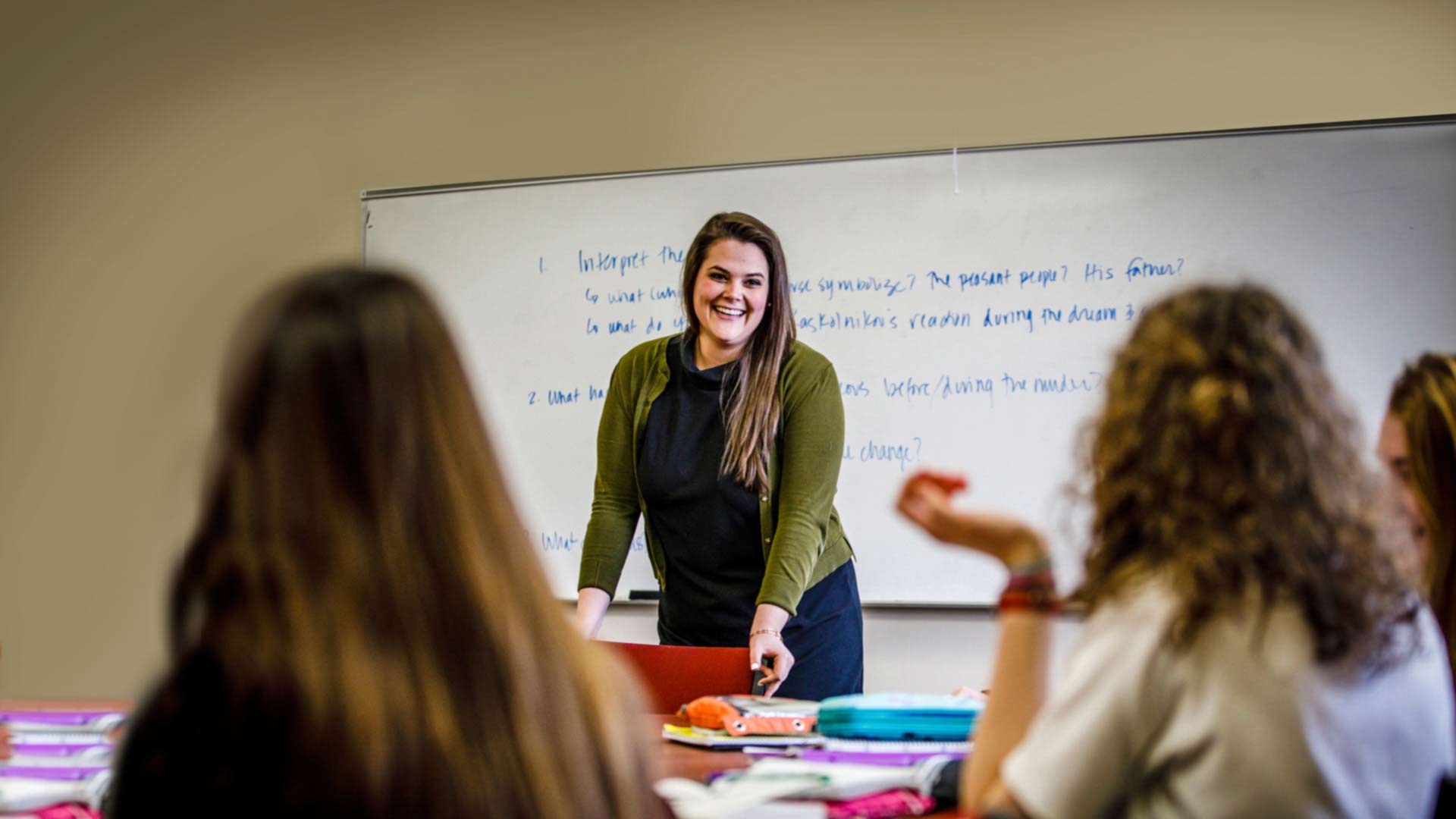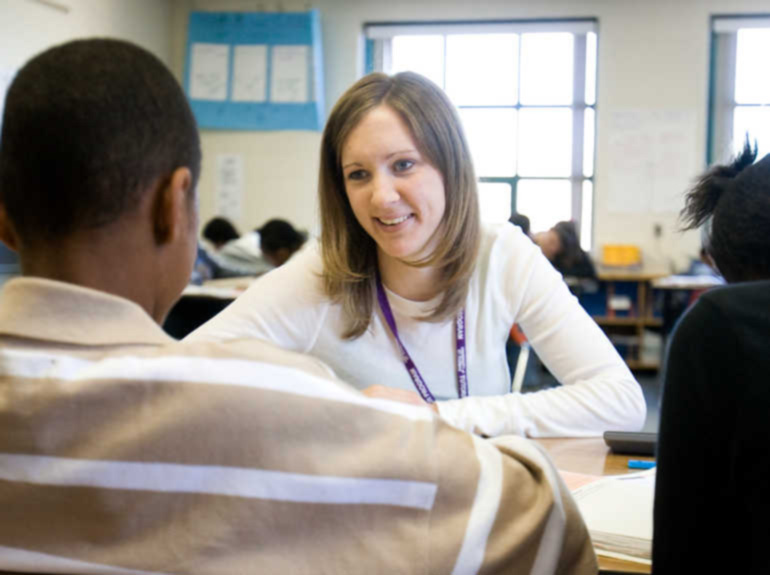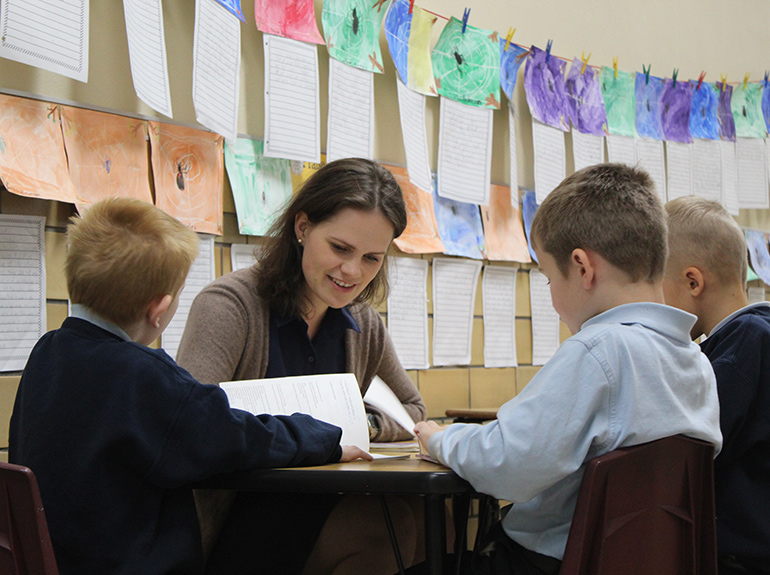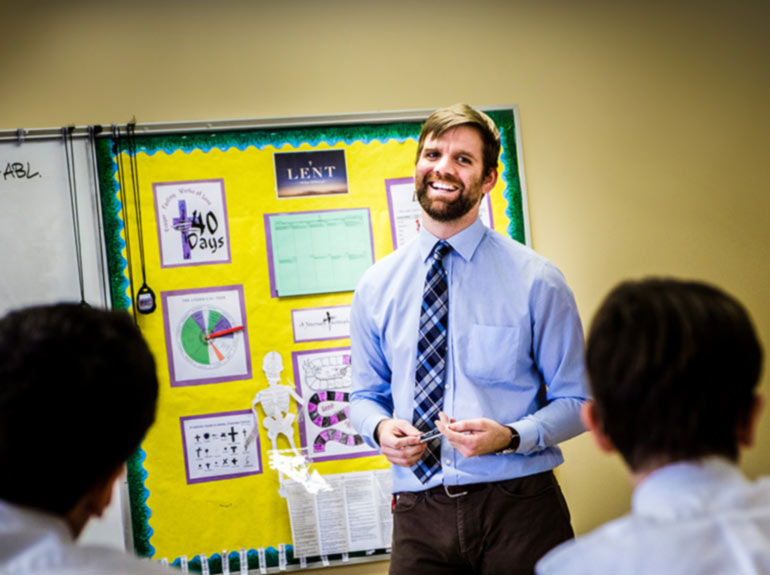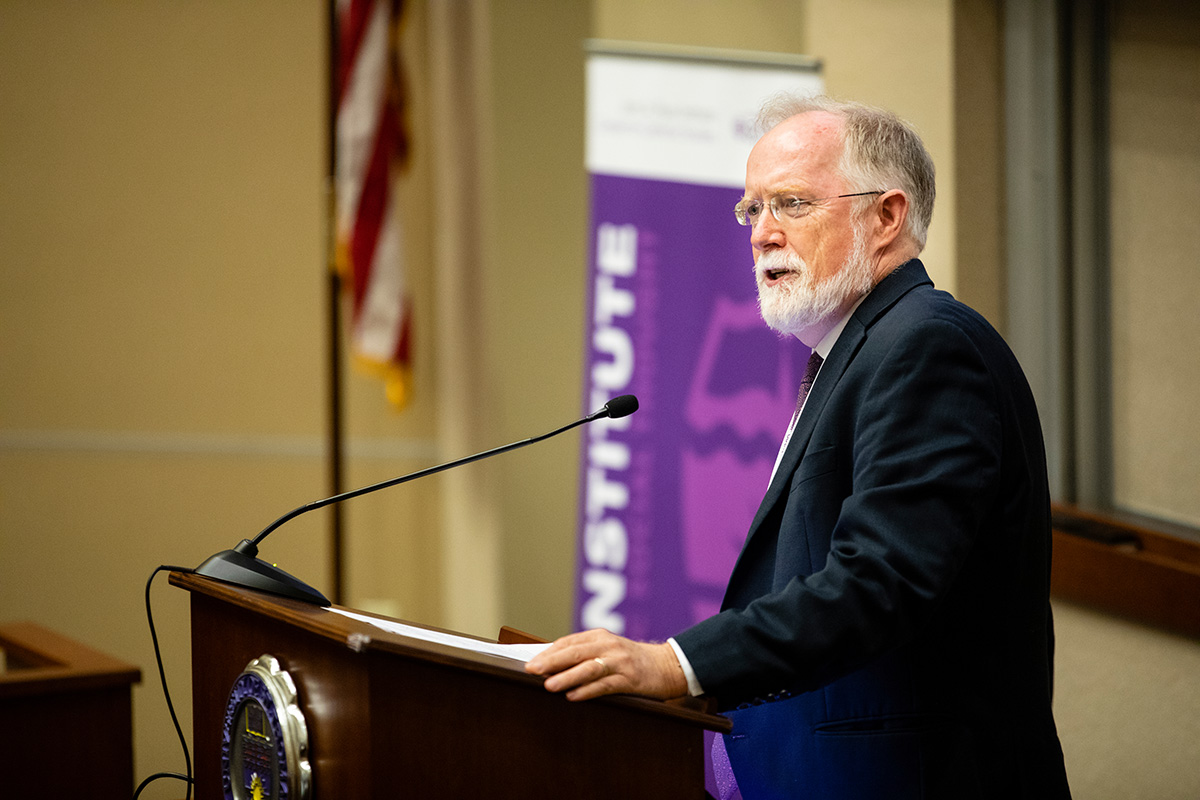Scholarships and Financial Aid
No additional scholarship application is required. Priority is given to full time, in person students, followed by: full time online/hybrid students: part time, in person Catholic ministers, including Catholic school teachers; part time, remote Catholic ministers, including Catholic school teachers. All Catholic Studies graduate applicants will be considered for financial support.
Many of our students need financial support to pursue a graduate degree in Catholic Studies. Thanks to the generosity of our donors, a limited number of generous partial and full-tuition scholarships are awarded each year on a competitive basis to full-time, degree-seeking, on-ground students of exceptional promise. These Catholic Studies Scholar awards are renewable until completion of the degree.
To apply for Catholic Studies Scholarships, simply indicate your interest in your online graduate application by March 1.
Free and Flexible
The Murray Institute at the University of St. Thomas provides qualified parish and Catholic school employees a TUITION-FREE path to a graduate degree!
This scholarship award can be applied toward a Master of Arts in Catholic Studies (33 credits), a Graduate Certificate in Mission & Culture in Catholic Education (18 Credits), or a Two-Course Study in Catholic Education (6 credits).
Requirements:
- Benefits-eligible employee within the educational ministries at Archdiocese of Saint Paul and Minneapolis Statement of support from your current principal & pastor.
- Commitment to work within the Archdiocese of Saint Paul and Minneapolis for the duration of your program, plus an additional three years upon completion of your program.
Thanks to the generosity of Catholic Studies donors, Catholic school educators outside of the Archdiocese of Saint Paul and Minneapolis are eligible for generous tuition scholarship funding.
Paid Graduate Assistantships (4-10 hours/week) are available. Assistantships allow graduate students to work within the Department and Center for Catholic Studies on both scholarly and professional projects . They offer students a rewarding learning and professional development experience. Assistants might work on international conferences, help mentor students in our leadership programs, edit our academic journal or aid a faculty member in research for publishing, or other related work.
The Dean's Office in the College of Arts & Sciences offers a limited number of scholarships to students admitted to its graduate programs. These scholarships are intended to appreciate scholastic achievement and to recognize academic potential among incoming students. MA and Certificate students are invited to indicate their interest in the Dean's Scholarships at the time of their application to their chosen program. Awards will typically be granted on a per course basis and, depending on availability of funds, will typically apply for up to three years when the recipient remains in good academic standing (with a GPA of 3.5 or above).
